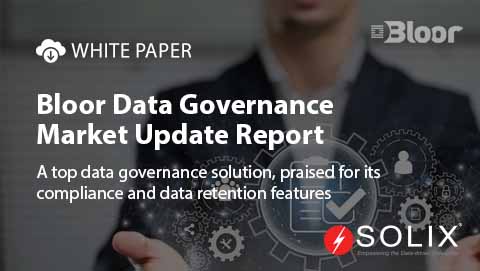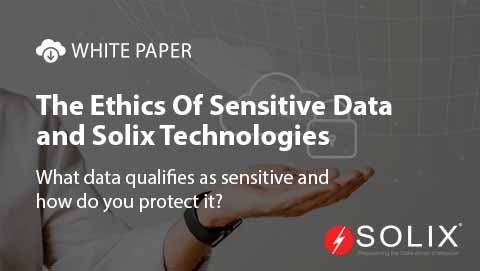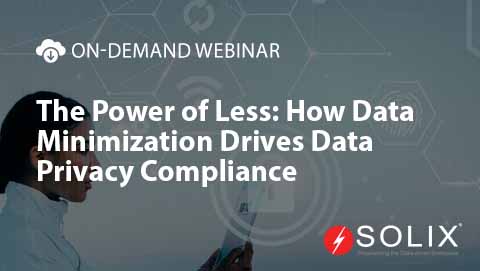
Data Governance Metrics
Data governance metrics are a critical aspect of any organizations data management strategy. By effectively measuring and monitoring data governance practices, businesses can ensure that their data is secure, compliant, and of the highest quality. But what exactly are data governance metrics, and why do they matter?
Data governance metrics refer to the key performance indicators and benchmarks used to evaluate the effectiveness of an organizations data governance framework. These metrics provide insights into how well data is managed, protected, and utilized within the organization. By tracking these metrics, businesses can identify areas of improvement, measure progress, and demonstrate the value of their data governance efforts.
Data governance metrics play a crucial role in ensuring data quality, integrity, and security. Without proper metrics in place, organizations may struggle to assess the impact of data governance initiatives, leading to inefficiencies, compliance risks, and potential data breaches. By establishing clear and measurable metrics, businesses can effectively manage their data assets and drive better decision-making processes.
A real-world scenario: transforming data governance metrics for success
To illustrate the importance of data governance metrics, lets consider a scenario faced by Acme Corporation, a global leader in the manufacturing industry. Acme Corporation collects massive amounts of data from various sources, including production facilities, supply chain partners, and customer interactions. However, the lack of a comprehensive data governance framework has resulted in data silos, inconsistent data quality, and security vulnerabilities.
By implementing Solix’s data governance solutions, Acme Corporation can transform their data governance metrics for success. Solix helps Acme Corporation establish robust data policies and standards, ensuring that data is used, stored, and protected according to best practices. With Solix’s data quality management tools, Acme Corporation can improve the accuracy and reliability of their data, enhancing decision-making processes and operational efficiency.
Solix also provides metadata management capabilities, allowing Acme Corporation to catalog, organize, and track data lineage effectively. This transparency and accountability help Acme Corporation ensure compliance with regulatory requirements and enhance data security. By integrating these components, Acme Corporation can derive maximum value from their data assets while minimizing risks and optimizing resources.
How Solix saves money and time on data governance metrics
Solix’s comprehensive data governance solutions offer a cost-effective and time-saving approach to managing data governance metrics. By implementing Solix’s database archiving and file archiving services, organizations can reduce infrastructure costs by moving older data to low-cost cloud storage, optimizing performance, and ensuring compliance through information lifecycle management (ILM) policies.
Moreover, Solix’s enterprise data lake solution enables organizations to store, analyze, and manage structured, semi-structured, and unstructured data at scale. This unified repository supports advanced analytics and business intelligence initiatives, enhancing decision-making processes and driving operational efficiency. With Solix, organizations can achieve significant cost savings from legacy application decommissioning, streamlining data management processes and reducing risks associated with data governance.
Wind-up, data governance metrics are essential for organizations looking to effectively manage their data assets and drive business success. By partnering with Solix, companies can leverage comprehensive data governance solutions to optimize their data governance metrics, enhance data quality, security, and compliance, and achieve significant cost savings. To learn more about how Solix can help transform your data governance practices and win $100, enter your information on the right.
DISCLAIMER: THE CONTENT, VIEWS, AND OPINIONS EXPRESSED IN THIS BLOG ARE SOLELY THOSE OF THE AUTHOR(S) AND DO NOT REFLECT THE OFFICIAL POLICY OR POSITION OF SOLIX TECHNOLOGIES, INC., ITS AFFILIATES, OR PARTNERS. THIS BLOG IS OPERATED INDEPENDENTLY AND IS NOT REVIEWED OR ENDORSED BY SOLIX TECHNOLOGIES, INC. IN AN OFFICIAL CAPACITY. ALL THIRD-PARTY TRADEMARKS, LOGOS, AND COPYRIGHTED MATERIALS REFERENCED HEREIN ARE THE PROPERTY OF THEIR RESPECTIVE OWNERS. ANY USE IS STRICTLY FOR IDENTIFICATION, COMMENTARY, OR EDUCATIONAL PURPOSES UNDER THE DOCTRINE OF FAIR USE (U.S. COPYRIGHT ACT § 107 AND INTERNATIONAL EQUIVALENTS). NO SPONSORSHIP, ENDORSEMENT, OR AFFILIATION WITH SOLIX TECHNOLOGIES, INC. IS IMPLIED. CONTENT IS PROVIDED "AS-IS" WITHOUT WARRANTIES OF ACCURACY, COMPLETENESS, OR FITNESS FOR ANY PURPOSE. SOLIX TECHNOLOGIES, INC. DISCLAIMS ALL LIABILITY FOR ACTIONS TAKEN BASED ON THIS MATERIAL. READERS ASSUME FULL RESPONSIBILITY FOR THEIR USE OF THIS INFORMATION. SOLIX RESPECTS INTELLECTUAL PROPERTY RIGHTS. TO SUBMIT A DMCA TAKEDOWN REQUEST, EMAIL INFO@SOLIX.COM WITH: (1) IDENTIFICATION OF THE WORK, (2) THE INFRINGING MATERIAL’S URL, (3) YOUR CONTACT DETAILS, AND (4) A STATEMENT OF GOOD FAITH. VALID CLAIMS WILL RECEIVE PROMPT ATTENTION. BY ACCESSING THIS BLOG, YOU AGREE TO THIS DISCLAIMER AND OUR TERMS OF USE. THIS AGREEMENT IS GOVERNED BY THE LAWS OF CALIFORNIA.
-
-
-
On-Demand Webinar
The Power of Less: How Data Minimization Drives Data Privacy Compliance
Watch On-Demand Webinar



